Trending Now
We have updated our Privacy Policy and Terms of Use for Eurasia Group and its affiliates, including GZERO Media, to clarify the types of data we collect, how we collect it, how we use data and with whom we share data. By using our website you consent to our Terms and Conditions and Privacy Policy, including the transfer of your personal data to the United States from your country of residence, and our use of cookies described in our Cookie Policy.
{{ subpage.title }}
Condoleezza Rice
Pioneering Black American leaders in US foreign policy
Who exactly are the people representing America to the world? Chances are they’re “pale, male, and Yale”, as the saying goes. Even in 2024, the US Foreign Service – especially in senior positions – doesn’t look like the rest of America. African Americans, people of color, and women continue to encounter barriers to influential roles.
However, some Black diplomats — like UN Ambassador Linda Thomas Greenfield — have broken this racial ceiling and helped reimagine what an American envoy can be. Her predecessors, through the sweep of US history, encountered discrimination and racism both domestically and abroad and left an indelible mark on US foreign policy. To mark the end of Black History Month, GZERO highlights the stories of a select few:
Ebenezer Don Carlos Basset
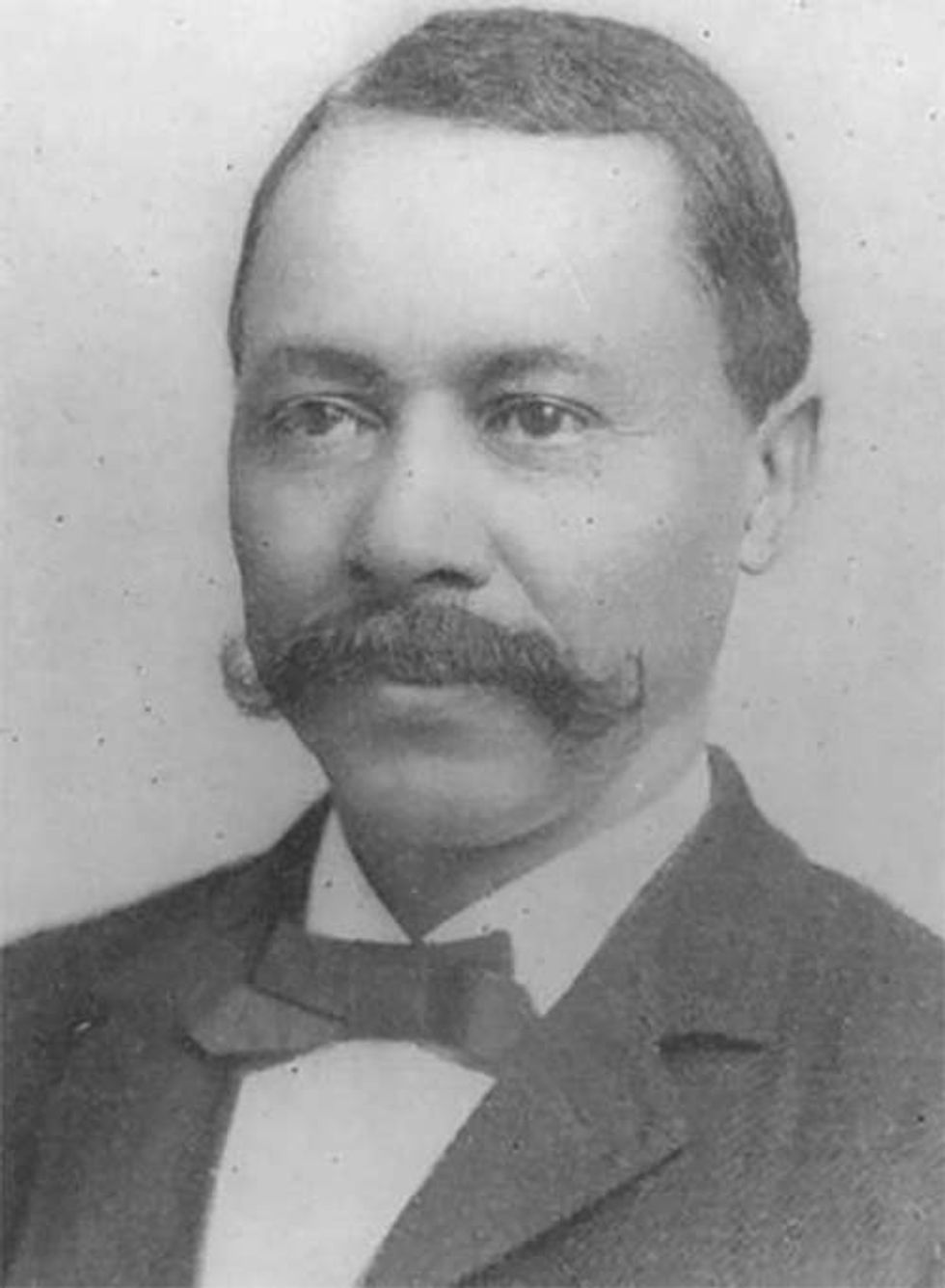
Ebenezer Don Carlos Basset
Fair Use/National Museum of American Diplomacy
Born into a free Black family in Connecticut in 1833, Bassett broke racial barriers from the very onset of his career. He was the first Black student admitted to the Connecticut Normal School and taught at the pioneering Institute for Colored Youth in Philadelphia in the years before the Civil War.
His impassioned polemics for abolition and equal rights during the war thrust him into the political spotlight. President Ulysses S. Grant appointed him minister to Haiti and the Dominican Republic in 1869, Basset became the first African American to serve as a diplomat anywhere in the world. Upon his return to the United States, he served as American Consul General for Haiti in New York City.
Frederick Douglass
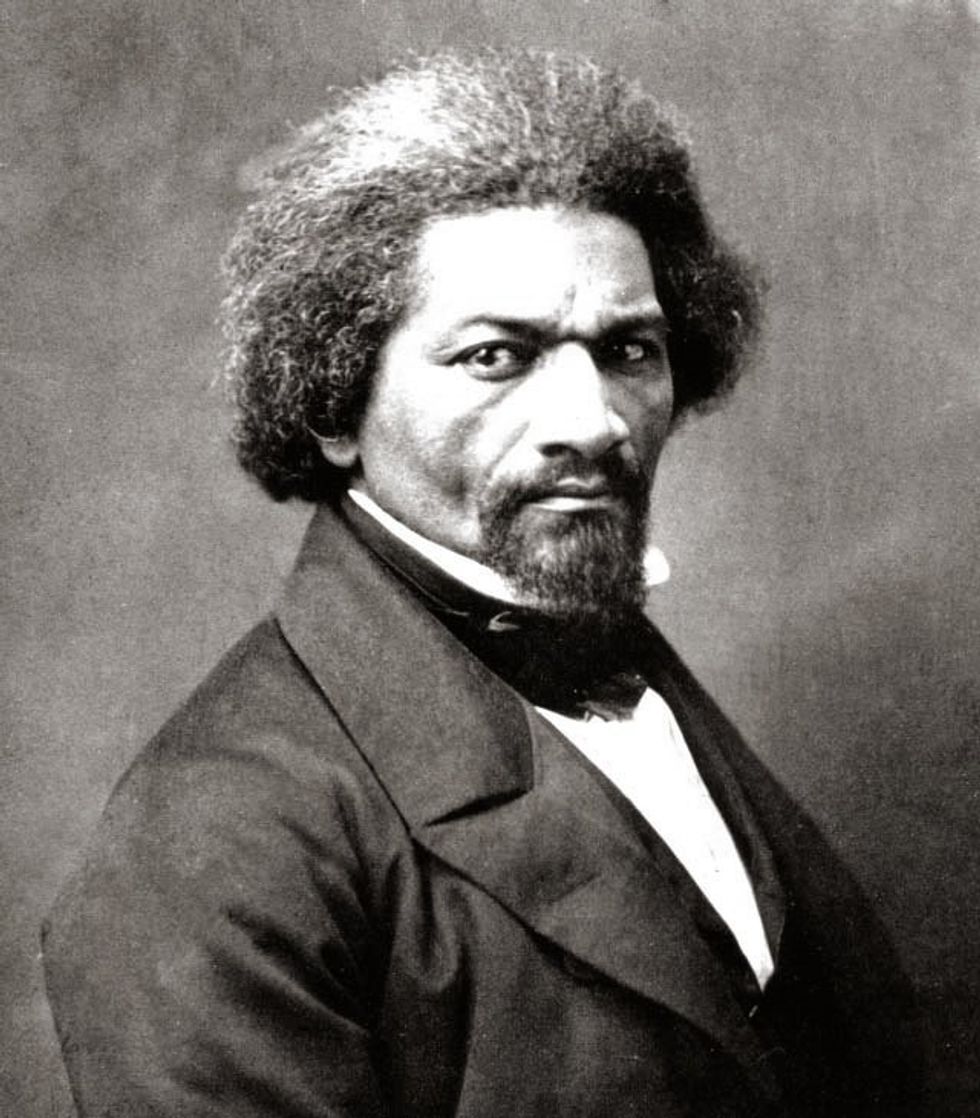
Frederick Douglass
Wiki Commons
Frederick Douglass, renowned abolitionist and orator, served as the United States minister resident, and consul-general to Haiti and Chargé d'affaires for Santo Domingo in 1889, appointed by President Benjamin Harrison. However, Douglass resigned in 1891, opposing President Harrison's aggressive territorial ambitions in Haiti. Haiti nonetheless honored Douglass by appointing him as a co-commissioner of its pavilion at the 1892 World's Columbian Exposition in Chicago. His principled stance against imperialism cost him his diplomatic career and underlines the tension Black diplomats still may feel navigating the predominantly white and upper-class U.S. Foreign Service.
William Henry Hunt
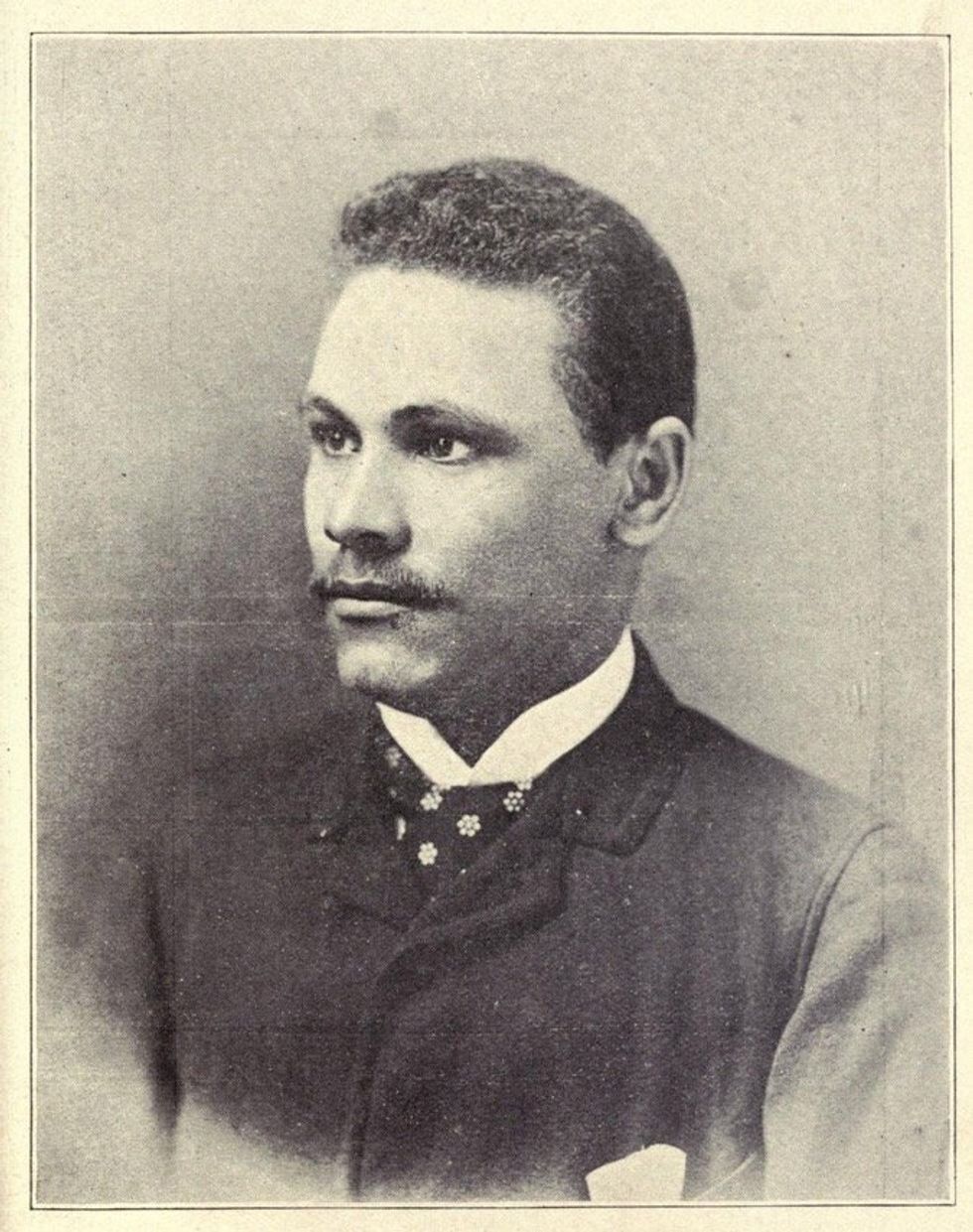
William Henry Hunt
Wiki Commons
Hunt was born into slavery in Tennessee in 1863, the son of Sophia Hunt and the man who enslaved her. Upon emancipation, his mother took him to Nashville, where access to education allowed him to attain a post in the US Consulate in Madagascar eventually. He went on to serve in consular roles spanning from Liberia to France until his retirement on December 31, 1932, pioneering a path for Black diplomats in the 20th century.
James Weldon Johnson
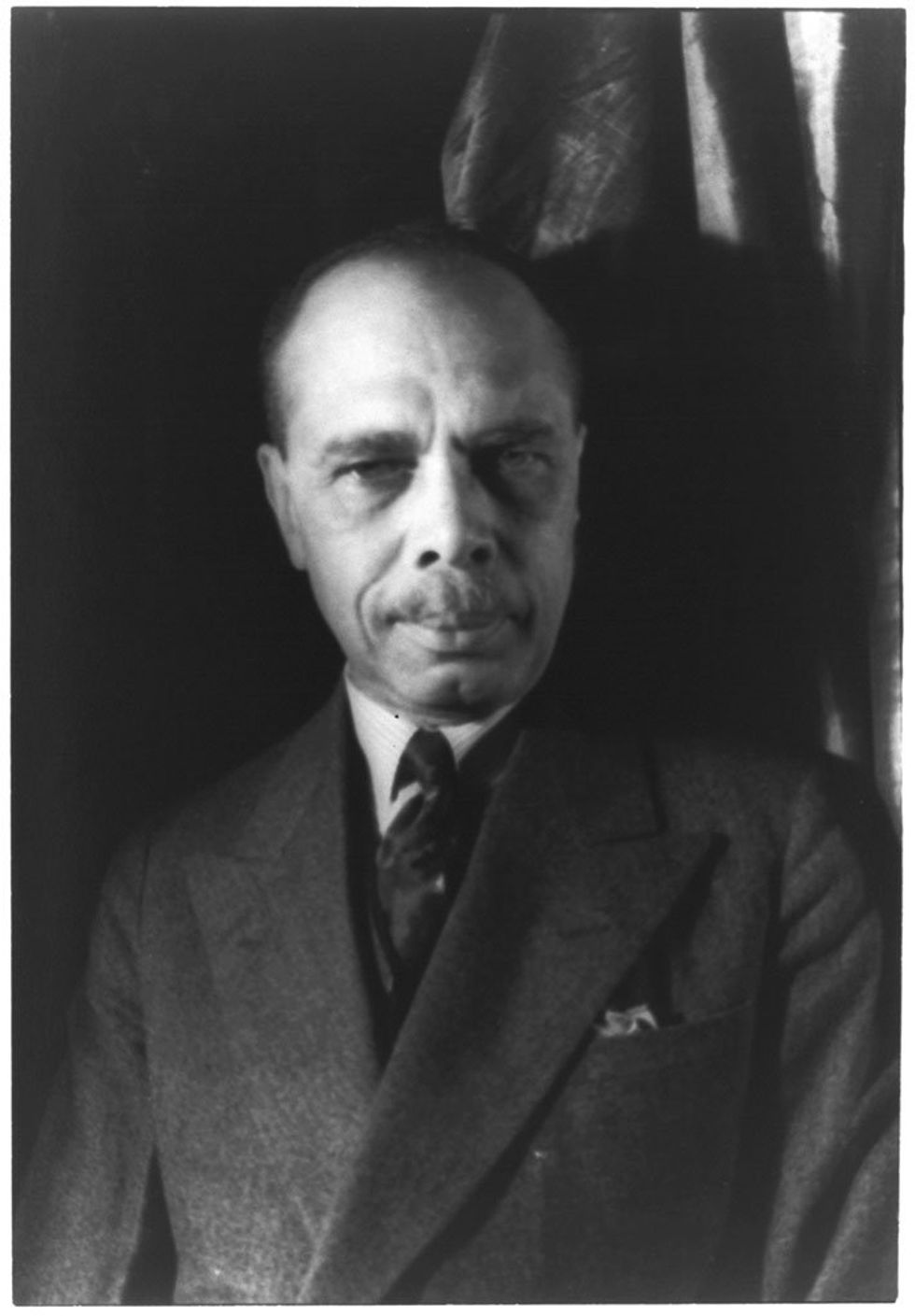
James Weldon Johnson
Library of Congress/Flickr Commons
Johnson served as a consul in Venezuela from 1906-1913, under President Theodore Roosevelt. However, he’s best remembered for contributions to the African-American cause that transcended diplomacy. He was a leading figure in the early days of the National Association for the Advancement of Colored People – effectively its executive officer from 1920 – and wrote “The Autobiography of An Ex-Colored Man.” He also co-wrote "Lift Every Voice and Sing," often referred to as the Black National Anthem, and established the "Daily American," the first Black newspaper.
Ralph Bunche
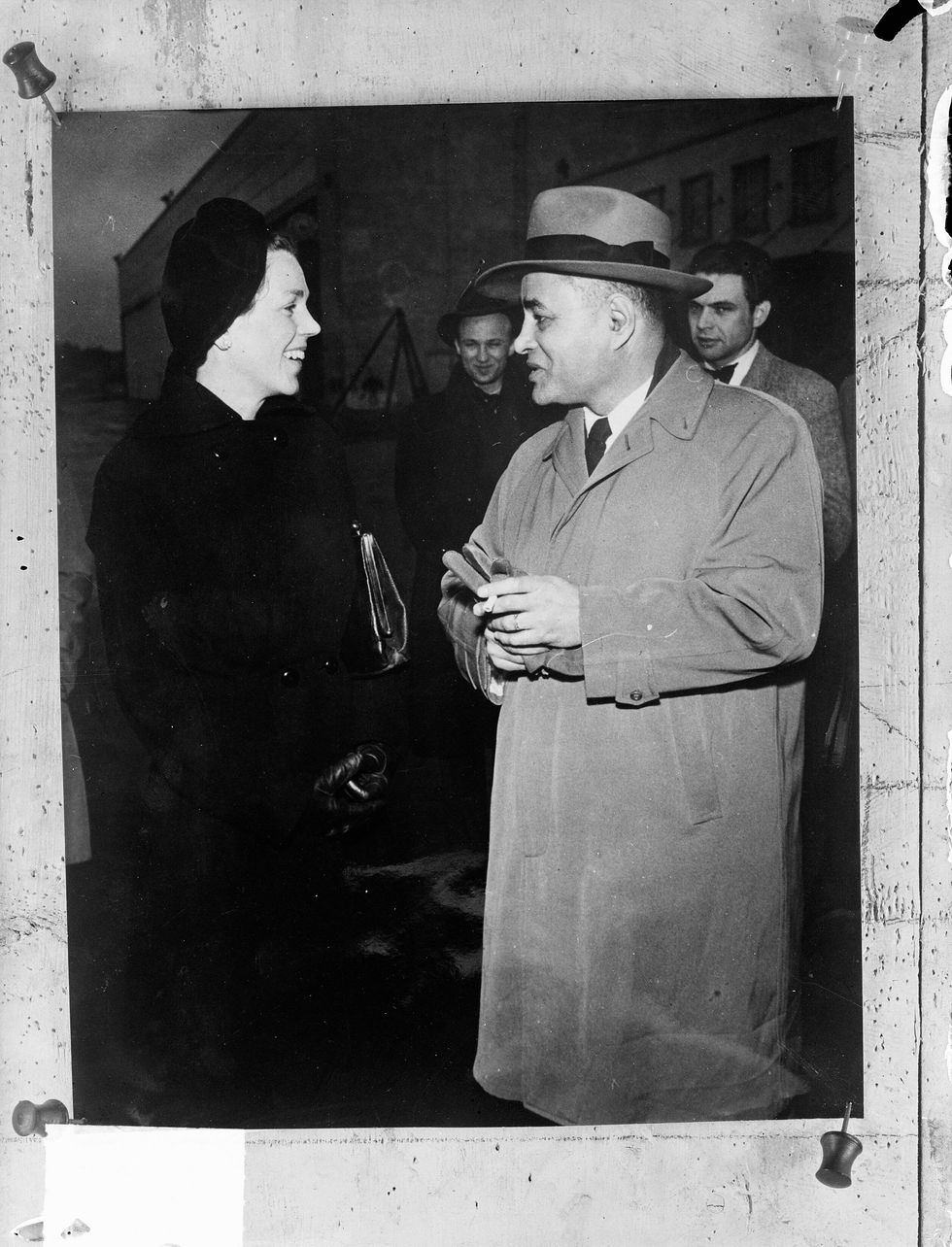
Anefo photo collection. Dr. Ralph Bunche in Stockholm with the widow of Count Folke Bernadotte. April 10, 1949. Stockholm, Sweden.
IMAGO/piemags via Reuters Connect
Ralph Bunche was arguably the most prominent African American diplomat of the twentieth century. He worked at the State Department from 1943 to 1971, serving under every president from Franklin Roosevelt to Richard Nixon. His initial focus on civil rights for African Americans evolved into a global human rights advocacy. He played a pivotal role in the formation of the United Nations in 1945 and the adoption of the UN Declaration of Human Rights in 1948. In 1950, he won the Nobel Peace Prize for his mediation efforts in the Palestine conflict, and in 1963, President Lyndon B. Johnson awarded him a Presidential Medal of Freedom.
Edward Dudley
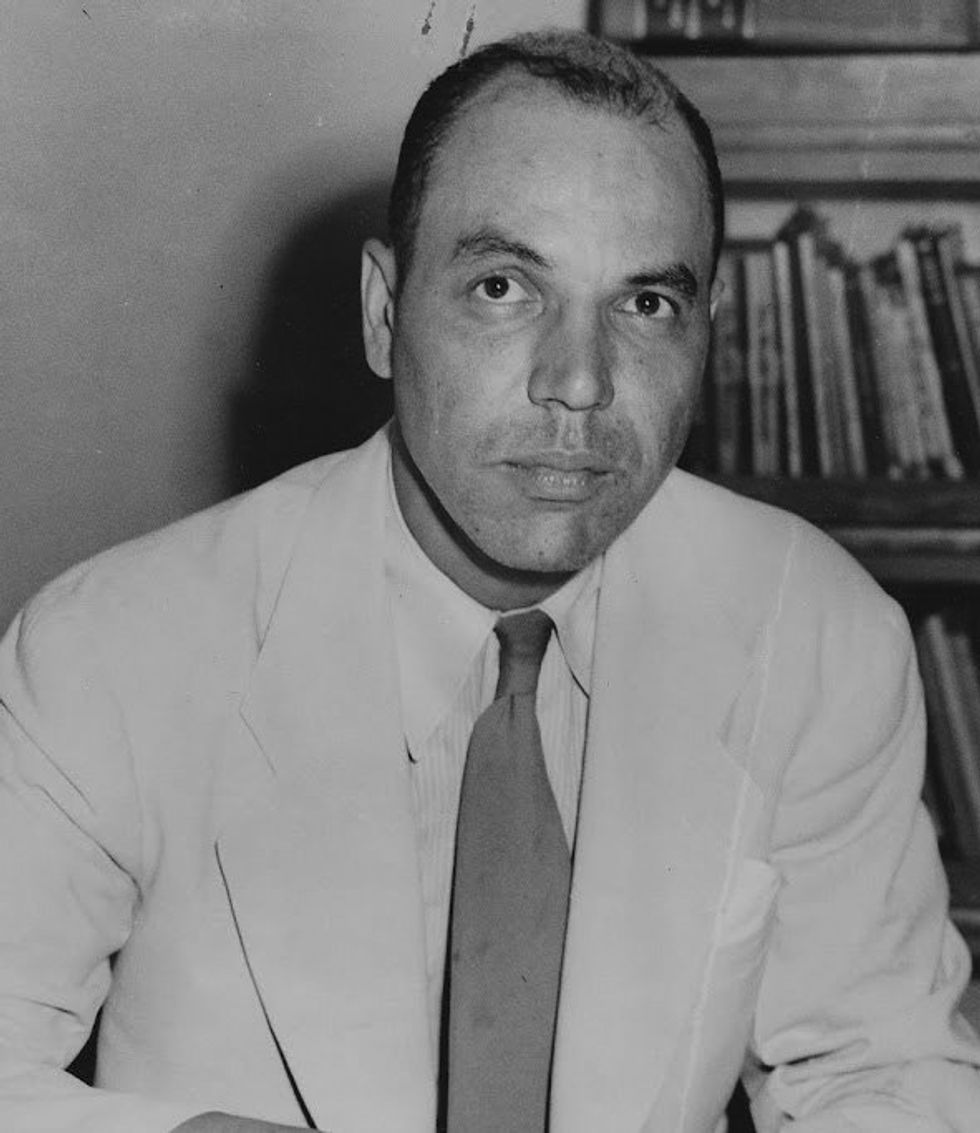
Edward Dudley
Fair Use/Flickr
Dudley was named minister to Liberia in 1948 and then an ambassador when the US raised its diplomatic mission to the embassy level the following year under the administration of Harry Truman. During this period, he and a few other Black diplomats were instrumental in the dismantling of the “Negro Circuit”, which limited the Black diplomatic corps to undesirable posts in select countries—often African and predominantly Black countries—while their white counterparts were transferred all over the world.
Clifton R Wharton Sr
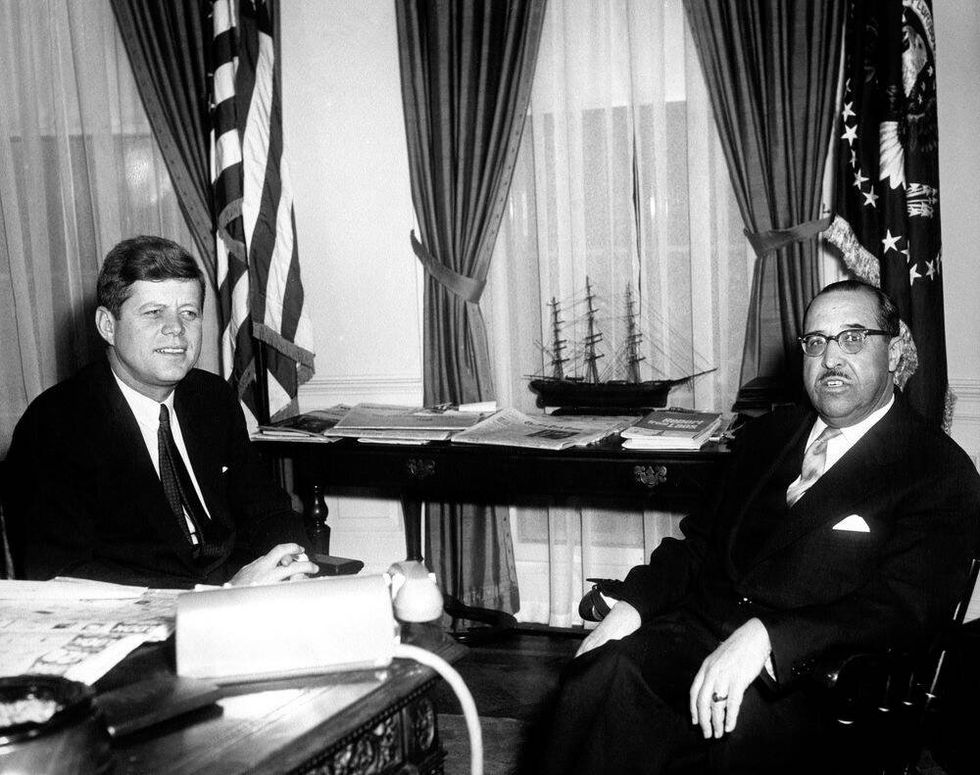
Meeting with the US Ambassador to Norway Clifton R. Wharton, Sr., 3:50 PM. President John F. Kennedy sits with US Ambassador to the Kingdom of Norway, Clifton R. Wharton. Oval Office, White House, Washington, D.C.
IMAGO/piemags via Reuters Connect
Wharton was the first African American to pass the rigorous Foreign Service examination and benefitted from the advocacy against the “Negro Circuit.” He worked across embassies and consulates around the world. He was the first Black career diplomat to lead a US mission in Europe as Minister to Romania, appointed by President Dwight Eisenhower. Wharton was appointed a US representative to NATO—a first for Black Americans—and a UN delegate. USPS issued a stamp as a tribute to his impeccable service 16 years after he passed.
Carl Rowan
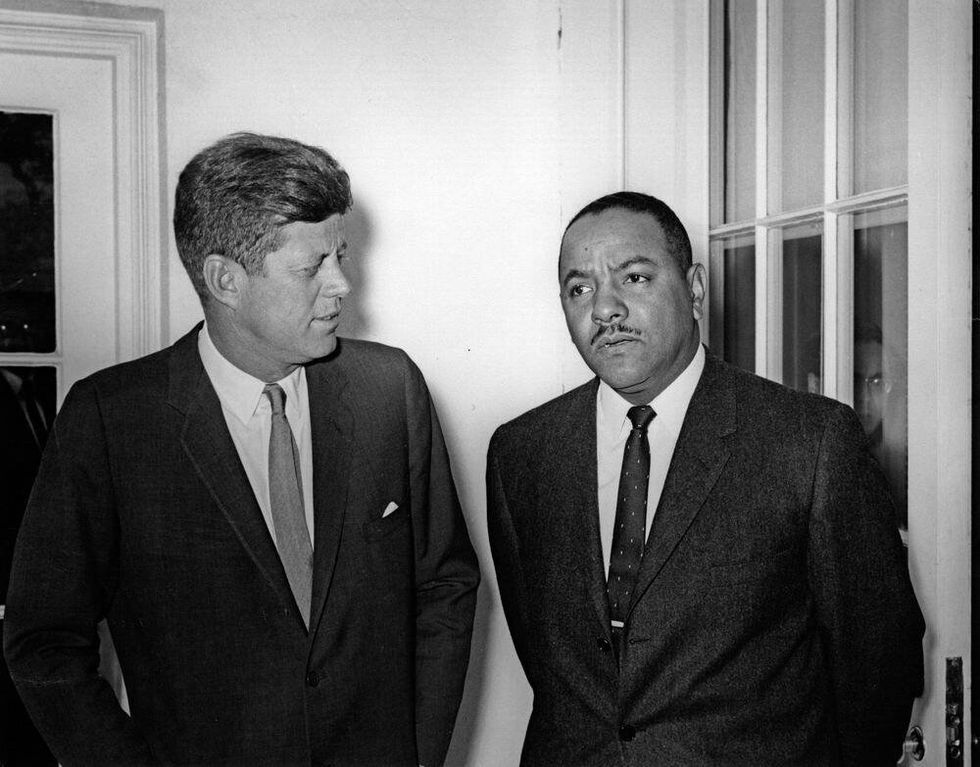
Meeting with the US Ambassador to Finland, Carl T. Rowan, 11:53AM. President John F. Kennedy meets with newly-appointed U.S. Ambassador to Finland, Carl T. Rowan right. West Wing Colonnade, White House, Washington, D.C.
IMAGO/piemags via Reuters Connect
Rowan rose to fame as a reporter for The Minneapolis Tribune, writing an acclaimed series about racism in America. He sat and interviewed the most prominent figures in America, including then-Senator John F. Kennedy, on the campaign trail in 1960. Impressed, Kennedy appointed Rowan Deputy Assistant Secretary of State, where he played a crucial role at the United Nations during the Cuban Missile Crisis. Later, he was the first Black director of the United States Information Agency (USIA) and, at that time, was the highest-ranking African American in the US government.
Patricia Roberts Harris
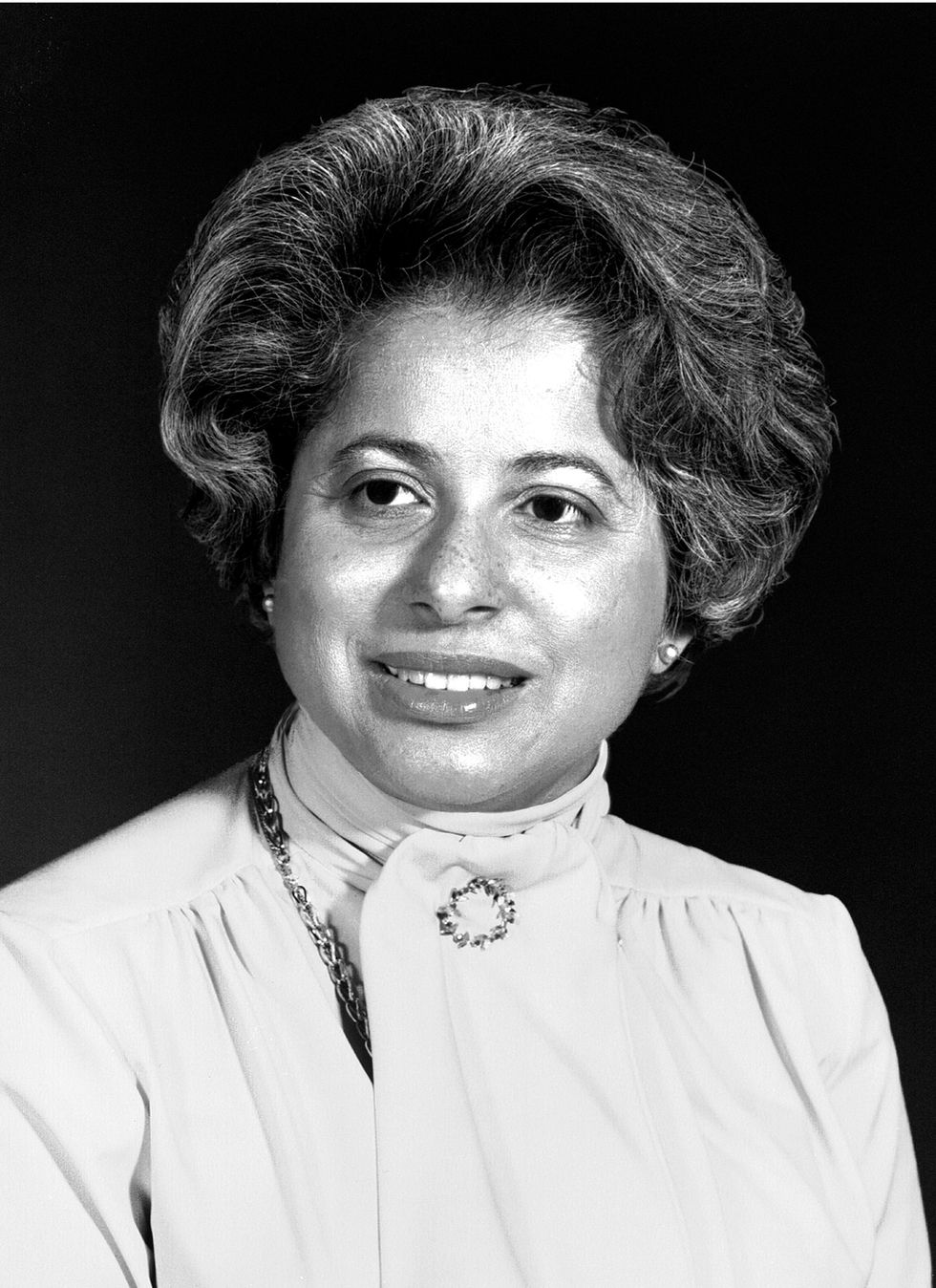
Patricia Roberts Harris
Fair Use/United States Department of Housing and Urban Development
The first African American woman to serve as a US ambassador, Harris served in Luxembourg between 1965-67 under the administration of President Lyndon Johnson. After her tenure, she was nominated as the Secretary of Housing and Urban Development in President Jimmy Carter’s cabinet in 1977. Her confirmation meant she became the first Black woman to direct a federal department.
Mabel M. Smythe-Haith
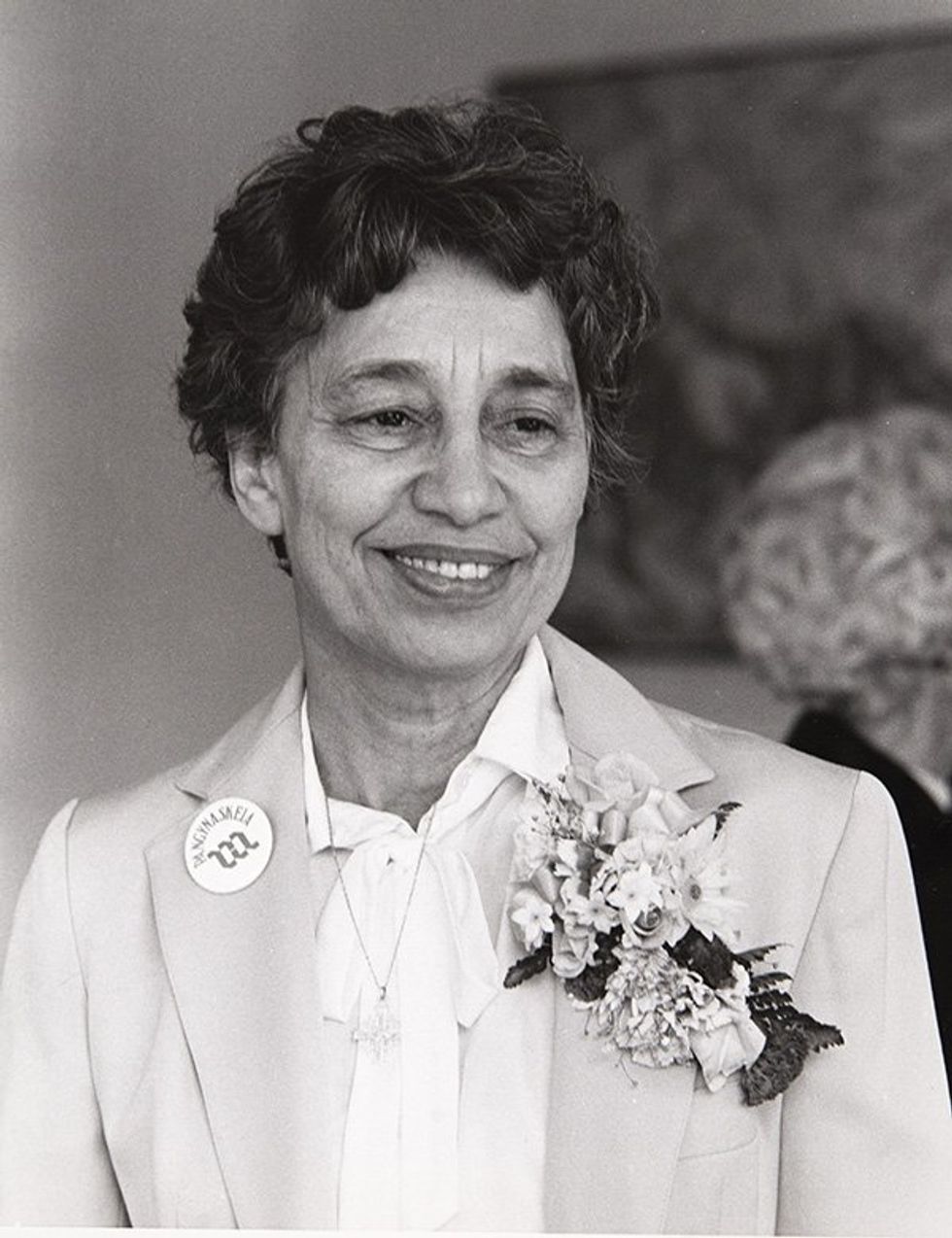
Mabel M. Smythe-Haith
Fair Use/Flickr
Smythe-Haithe was the first Black woman to hold an ambassador position in Africa and the second Black female ambassador during the Carter Administration. Prior to her diplomatic career, she worked with the NAACP on the landmark Brown v. Board of Education desegregation case alongside Thurgood Marshall. She also served on the State Department’s Advisory Council for African Affairs under President John F. Kennedy.
Colin Powell
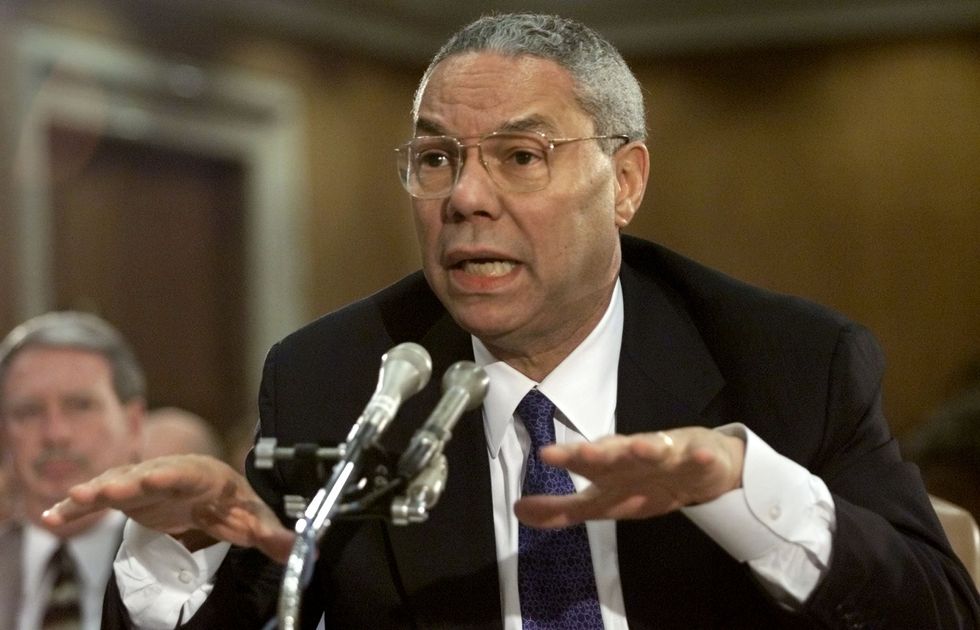
U.S. Secretary of State Colin Powell makes a point as he testifies May 15, 2001, before the Senate approprations subcommittee for programs of the State Department for the fiscal year 2002.
Reuters
Born in New York to immigrant parents from Jamaica, Powell became the first Black Secretary of State under President George Bush in 2001 after a 35-year career in the military. Powell oversaw foreign policy during the worst national disaster of recent memory, the September 11 attacks. Despite accolades, his tenure was marked by controversy, notably his defense of the 2003 Iraq invasion before the United Nations Security Council. He resigned upon President Bush's 2004 reelection, but his tenure coincided with a surge in black diplomats in the Foreign Service.
Condoleezza Rice
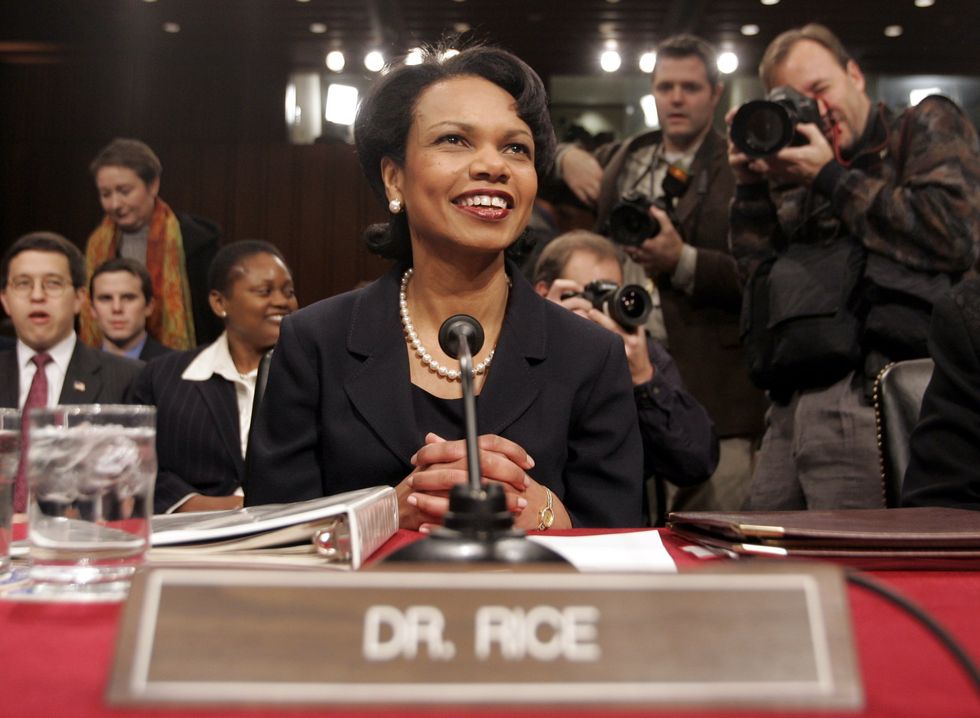
U.S. Secretary of State-designate Condoleezza Rice sits before her U.S. Senate confirmation hearing on Capitol Hill in Washington, January 18, 2005. Rice vowed to press diplomacy in President Bush's second term after he was criticized for hawkish and unilateral policies in his first four years.
Larry Downing/Reuters
Appointed as National Security Advisor by President George W. Bush in 2002, Rice made history as the second Black person and first Black woman to serve as Secretary of State in 2005. In that role, she advocated for Israel’s withdrawal from Gaza and ceasefire negotiations with Hezbollah in 2005 – though the Bush administration’s legacy in Iraq and Afghanistan dominates memories of her tenure. Under her leadership, the State Department witnessed an increase in Black diplomats, although this progress saw setbacks under President Donald Trump.
- The 1619 Project’s creator Nikole Hannah-Jones discusses its cultural impact ›
- The history of Black women judges in America ›
- The Graphic Truth: Black immigrants in the US ›
- The Graphic Truth: Black representation in the US Congress ›
- Why do Black people feel "erased" from American history? ›
- Ron DeSantis and the latest battle over Black history ›
- Will foreign policy decide the 2024 US election? - GZERO Media ›
- Kamala Harris makes her case - GZERO Media ›
The Graphic Truth: Black representation in the US Congress
Since Martin Luther King Jr. delivered his iconic "I have a dream" speech in August 1963, the number of Black Americans elected to the US Congress has increased dramatically. Still, it wasn't until 2019, more than half a century later, that the share of Black members serving in the House of Representatives reflected the percentage of Black Americans in the broader population: 12%. To date, only seven US states have sent Black representatives to serve in the US Senate.
Here's a look at Black representation in every US Congress since 1963.
- Voting reform bill stalls in Congress, frustrating Democrats - GZERO Media ›
- The history of Black voting rights in America - GZERO Media ›
- The problem with China’s Zero COVID strategy | GZERO World Podcast - GZERO Media ›
- Podcast: How we got here: Evaluating 1619 and US history with Nikole Hannah-Jones - GZERO Media ›
- Ian Explains: Why Congress can't fix the US border problem - GZERO Media ›
- Pioneering Black American leaders in US foreign policy - GZERO Media ›
Podcast: Are identity politics a trap? A conversation with author and political scientist Yascha Mounk
Listen: Political scientist and author Yascha Mounk joins Ian Bremmer on the GZERO World Podcast to discuss his latest book, “The Identity Trap: A Story of Ideas and Power in Our Time.” Mounk delves into the complicated dynamics of identity politics and challenges the conventional wisdom from the progressive left that focusing on identity and what makes us different from each other leads to a more equitable society. By highlighting our differences rather than shared values, Mounk argues, well-meaning liberals are exacerbating societal division and hindering progress toward greater equality. While acknowledging that our society is deeply imperfect and genuine injustices remain, Mounk unpacks the implications of identity politics and questions whether the current focus on identity truly serves the cause of inclusivity or social harmony.
Subscribe to the GZERO World Podcast on Apple Podcasts, Spotify, Stitcher, or your preferred podcast platform, to receive new episodes as soon as they're published.
Activists descend on Washington, DC, to mark the 60th anniversary of MLK's "I have a dream" speech.
The March on Washington, 60 years later
Sixty years ago on Monday, over a quarter of a million people gathered in Washington, DC, for the March on Washington for Jobs and Freedom. Standing on the steps of the Lincoln Memorial, a century after the Emancipation Proclamation was signed, Rev. Martin Luther King Jr. gave his famous “I Have a Dream Speech,” galvanizing supporters of the Civil Rights Movement.
The march was initially conceived 20 years prior by labor leader Philip Randolph when African Americans were excluded from the job creation programs under President Franklin D. Roosevelt’s New Deal. By the late 1950s, with the Civil Rights Act stalled in Congress, Dr. King and his Southern Christian Leadership Conference were also planning to march on Washington for freedom.
Together, they planned a march to capitalize on the growing grassroots support and outrage over racial inequality in the US. The massive turnout, in conjunction with a decade of other peaceful protests for civil rights, convinced President Lyndon B. Johnson to sign the Civil Rights Act into law in 1964. The following year, he signed the National Voting Rights Act of 1965. Together, these bills outlawed discrimination against people of color and women, effectively ended segregation, and made discriminatory voting practices illegal.
This weekend, thousands gathered in Washington to commemorate the march’s 60th anniversary. The day was filled with speeches from civil rights leaders and activists reminding the nation of its unfinished work on equality. I attended and was struck by how intergenerational but connected the crowd was – alumni of HBCUs were embraced by current students, and older members of Black fraternities and sororities reminisced with new members. Like an echo, the words “go vote” were exchanged in lieu of “goodbye.”
Yolanda King, Dr. King’s 15-year-old granddaughter, told the crowd, “If I could speak to my grandfather today, I would say, I’m sorry we still have to be here to rededicate ourselves to finishing your work and ultimately realizing your dream,” she said. “Today, racism is still with us. Poverty is still with us. And now, gun violence has come for places of worship, our schools, and our shopping centers.”
Leaders of other social movements also gave speeches, from Parkland survivor and March for Our Lives founder David Hogg, to Planned Parenthood CEO Alexis McGill Johnson. In the aftermath of the Supreme Court overturning Affirmative Action and Roe v. Wade, all of the speakers warned that the progress of the civil rights movement could be reversed.
“We’ve come a long way in the 60 years since MLK stood on those steps, " said Albert Williams, a civil rights activist who attended Saturday’s march and the original in 1963, “but black communities throughout the world are still in a state of emergency today.”
GZERO reporter Riley Callanan was on hand this weekend for the commemorative march in Washington, DC.
Clarence Page: Why Black voting rights matter
When the 1965 Voting Rights Act was passed, Pulitzer Prize-winning columnist Clarence Page had just finished high school.
This legislation changed the lives of Black people in America because Jim Crow laws had virtually prevented Blacks from voting in the South with impossible poll questions and literacy tests, he said in an interview with Ian Bremmer on GZERO World.
But the Supreme Court gutted the law in 2013, allowing states to pass new voting legislation that progressives say restricts Black access to the ballot box.
The 2022 midterm elections will be the first major test of these laws — which Democrats in Congress are unlikely to be able to stop. How will this all affect Black turnout in November?
Page explains that if Trump loyalists win in key states, their legislatures — not voters — may end up deciding the next US presidential race.
What may happen in 2024 reminds him of 1876, when the end of Reconstruction after the Civil War, along with a disputed presidential election, ushered in the Jim Crow laws that ended ability to vote in Alabama.
Page asks, “Are we going to get rid of these last vestiges of discrimination from the Jim Crow era?"
The Graphic Truth: Black immigrants in the US
One in 10 Black Americans was born overseas, up by 3 percentage points since 2000. By 2050, the US Census Bureau estimates that immigrants will make up 15% percent of the Black population in America. The data shows that national origin reflects differing education and average household wealth levels. We look at a few data points distinguishing US- and foreign-born Black Americans.
Critical race theory and Black voting rights
Did conservative backlash against critical race theory influence Republican-led US states to pass new voting laws restricting Black Americans' access to the ballot box?
Pulitzer Prize-winning columnist Clarence Page thinks so, to a certain extent, he tells Ian Bremmer on GZERO World.
Anything that looks like Black history or that makes white children feel bad, he says, has been inaccurately labeled as critical race theory and presented as a danger, motivating a lot of voters to get rid of it — for instance through voter suppression.
For Page, it's ironic that some in the party of Abraham Lincoln are now fighting those old Civil War battles again as far as democracy is concerned.
Watch this episode of GZERO World with Ian Bremmer: Black voter suppression in 2022
Black voter suppression in 2022
Until the 1965 Voting Rights Act, Black people in America who wanted to vote faced impossible poll questions and literacy tests. But the Supreme Court gutted the law in 2013, allowing states to pass new voting legislation that progressives say restrict Black access to the ballot box.
The 2022 midterm elections will be the first major test of these laws — which Democrats in Congress are unlikely to be able to stop. How will this all affect Black turnout in November?
On this episode of GZERO World, Pulitzer Prize-winning columnist Clarence Page tells Ian Bremmer that if Trump loyalists win in key states, their legislatures — not voters — may end up deciding the next US presidential race.What may happen in 2024 reminds him of 1876, when Page says the end of Reconstruction after the Civil War, along with a disputed presidential election, ushered in the Jim Crow laws that ended his ancestors' ability to vote in Alabama.
What's driving all this? For Page, part of the problem is the grievance narrative around critical race theory, which has made some Americans confused between being a Democrat and being democratic.
Still, he says you can't deny that Republicans want to make it harder to vote, while Democrats try to make it easier. That's a big problem because "we're at loggerheads over who should be allowed to vote and, and who shouldn't."
Page also compares President Biden's pledge to nominate a Black woman to fill Justice Breyer's seat on the Supreme Court to Ronald Reagan's decision to pick Sandra Day O'Connor. And as a bonus, Ian looks back at the history of Black women judges in America.
- Voting reform bill will likely be blocked, but still a key issue for ... ›
- Voting reform bill stalls in Congress, frustrating Democrats - GZERO ... ›
- The history of Black voting rights in America - GZERO Media ›
- Counter narrative: Black Americans, the 1619 Project, and Nikole ... ›
- Why do Black people feel "erased" from American history? - GZERO ... ›


